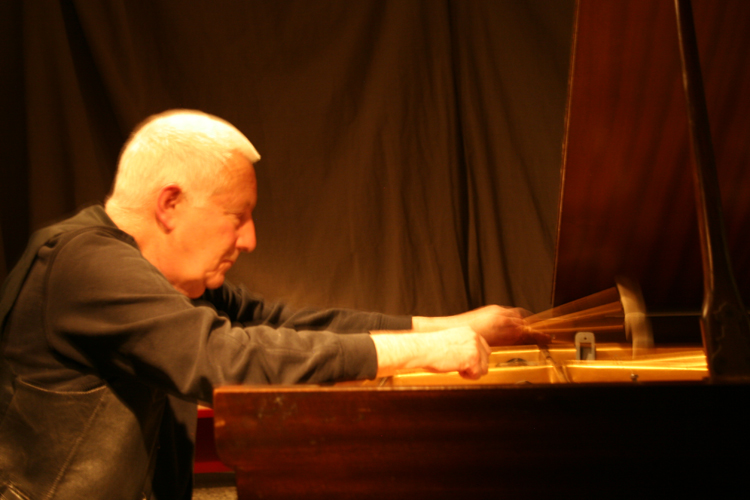
https://dalstonsound.wordpress.com/2012/04/12/john-tilbury-and-marcus-schmickler-john-butcher-at-cafe-oto/
Yet because of its directness, its immediacy, improvisation is often perceived simply as something musicians do when they arrive on stage, as if by default, without sheets of manuscript paper. They invent nothing, they simply access their memory bank. But just as thought has preceded the mark on the manuscript paper in the composer's studio, so before he emits a sound the improviser has trained and prepared himself; he has reflected on the new musical problems that have arisen; he has pondered and perhaps rejected the 'reformulation of successful modes'; he has recalled the unresolved tensions of previous performances; he has considered the relationships with other players: in short, he has engaged in musical thought. A particular improvisation is one of many possible consequences of these considerations; spontaneously and publicly, they are given temporal musical expression. (John Tilbury, Cornelius Cardew: A Life Unfinished,Copula, 2008, p. 318)
No comments:
Post a Comment